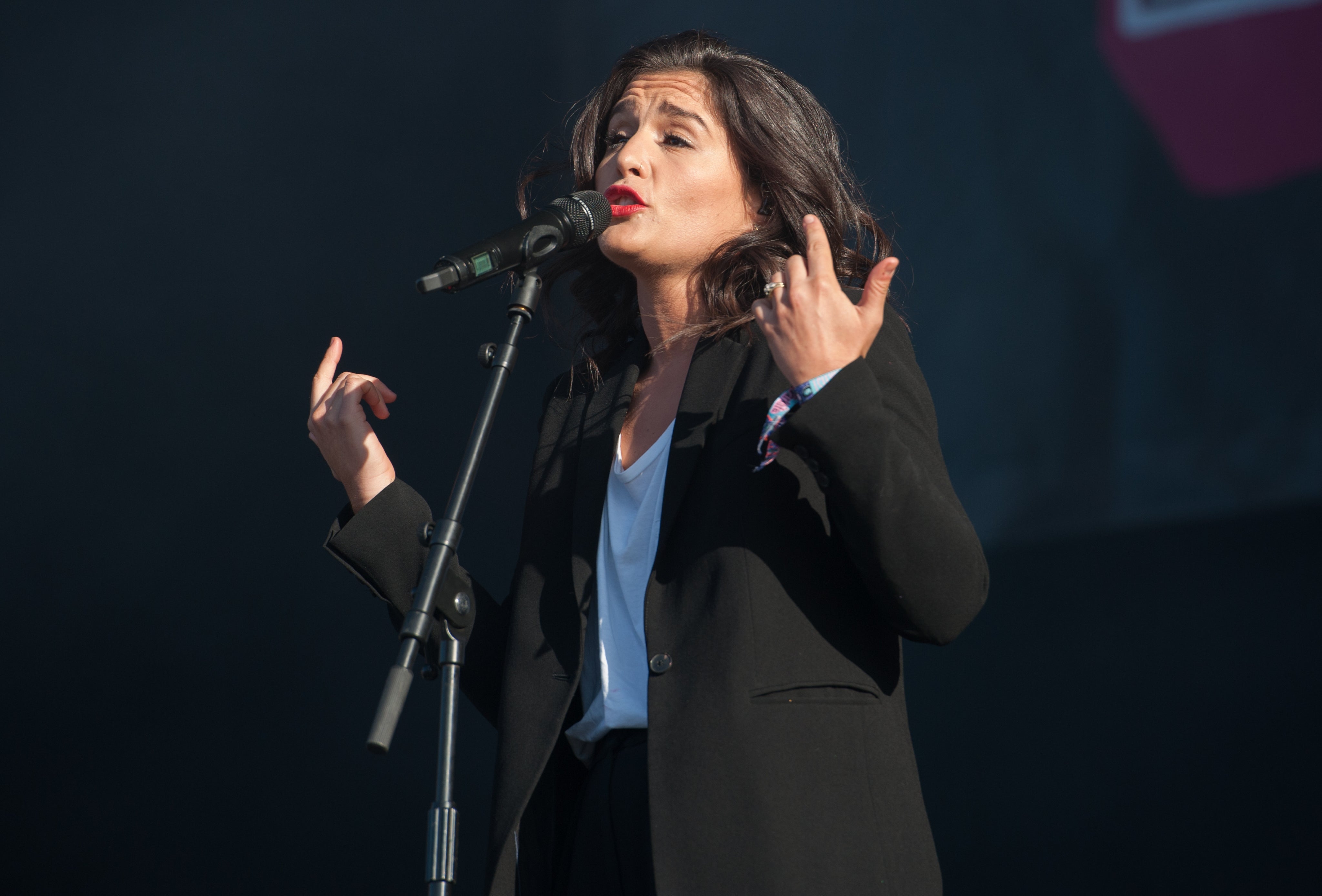Jessie Ware wants wearable tech for deaf fans in all live music venues
The new 5G technology helps people with hearing difficulties to have a multi-sensory experience of music during gigs.

Your support helps us to tell the story
From reproductive rights to climate change to Big Tech, The Independent is on the ground when the story is developing. Whether it's investigating the financials of Elon Musk's pro-Trump PAC or producing our latest documentary, 'The A Word', which shines a light on the American women fighting for reproductive rights, we know how important it is to parse out the facts from the messaging.
At such a critical moment in US history, we need reporters on the ground. Your donation allows us to keep sending journalists to speak to both sides of the story.
The Independent is trusted by Americans across the entire political spectrum. And unlike many other quality news outlets, we choose not to lock Americans out of our reporting and analysis with paywalls. We believe quality journalism should be available to everyone, paid for by those who can afford it.
Your support makes all the difference.Jessie Ware has called for new wearable technology that allows deaf and hard-of-hearing people to experience live music like other fans to be made available in every venue.
Revellers at the Mighty Hoopla festival in London’s Brockwell Park, where singer-songwriter Ware performed earlier this month, were the first to try out the 5G-enabled haptic harness.
The technology, from Vodafone, allows fans to feel the music through vibrations, delivered by 24 touch points around the harness to provide a multi-sensory experience.
Ware, 37, who headlines The Park stage at Glastonbury next weekend, told the PA news agency the possibilities felt “endless” and she was “excited for the future”.
She said of the trial: “I was very, very honoured to be a part of that and for that to be happening.
“For me, it’s really important that my shows can be as inclusive as possible.
“And for deaf and hard-of-hearing people who have felt isolated with their experience of live music, I think the special thing about these suits is that not only are you being able to feel the vibrations of the music, but you’re also feeling the vibrations of the audience.
“Therefore you are fully immersed in the festival – and that’s what festivals are about, togetherness. And music is about that too, and being together and experiencing this moment together.
“For those two to be able to communicate together for deaf and hard of hearing people, I think that was what seemed even more special about this, from what I gather for them.
“It was just really exciting and I loved being a part of it.”
Music fans with limited hearing who attend festivals will often rely on lip reading and vibrations from the speakers to connect with performers, but this entails them getting very close to the stage.
Vodafone partnered with Music Not Impossible to develop the harnesses, which combines the company’s haptic technology with Vodafone’s low-latency 5G network.
Ware said the technology could be rolled out across the entire music industry.
She said: “It’s great and it’s really big steps. The next step is now for these to be available in every kind of venue.
“I don’t know how that can work out but that will be the next step so that it can continue and they are included.”